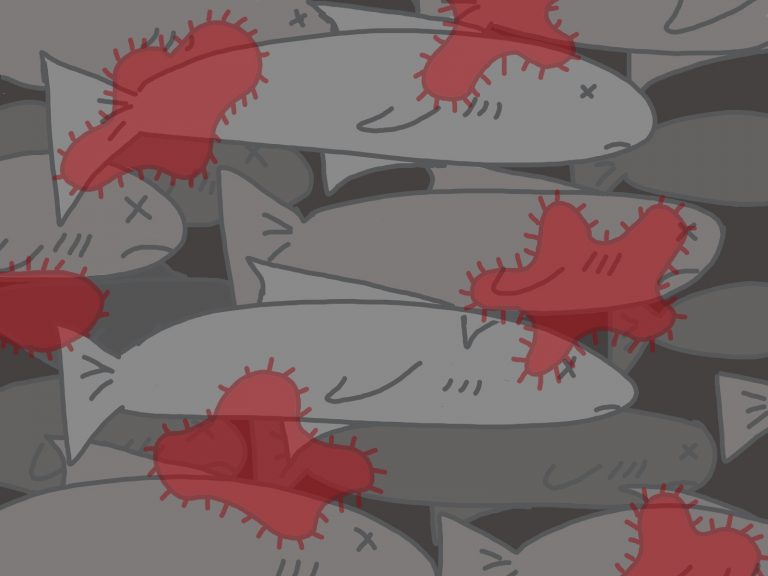
Nicholas Torrano
In response to mudslide debris being dumped into local oceans, Santa Barbara County has announced a public health warning advising residents to avoid consuming locally-sourced raw fish as it “highly exceeds the standard level,” according to the Direct Relief Organization.
There are several eateries in Isla Vista that offer raw fish options. This warning could have affected consumers in this area, but business owners in the area said it does not.
Dusty Cooper, senior executive chef for UCSB’s Residential Dining Services told The Bottom Line that their food comes from local suppliers. However, with recent concerns regarding contaminated waters in the vicinity, he said that “seafood we purchase is fished miles from shore, far away from any contamination.”
“We would never serve questionable product, nor would our vendors sell questionable product,” Cooper told The Bottom Line.
PokeCeviche said that they have overseas suppliers, meaning their product wouldn’t be a hazard to its customers.
Jasmine, an employee at PokeCeviche who did not give a last name, said that “business has been the same” despite the current state of poor water quality.
Nareh Shanazarian, manager at Hiwi Fusion, also says that their fish is sourced from outside the U.S., specifically, “Japan and Taiwan,” thus not sourced from the contaminated waters in the surrounding area.
Pokirito, another poke place in Isla Vista, gets their “fish from Canada and Europe,” reassured manager, Oak Rujiphan.
“The restaurant has been even more busy since New Years and despite the health scare of local contaminated waters, this is probably just the result of continuous exposure to the eatery,” Rujiphan said.
I.V. businesses are avoiding locally-sourced fish, but students seem to be unaware of the local health warning.
For one, David Horner, a fourth year environmental science major errs on the side of caution in regards to consuming raw ingredients.
“[I’m] generally skeptical about purchasing raw fish and will ask where the product is coming from or only dine at honest and credible establishments,” Horner told The Bottom Line.
Gabriela Lafferty, a third year sociology major was also unknowledgeable about the public warning to avoid consuming raw fish. However, she said that she “trusts that if these local business are still selling these items that they must be safe to the public.”
To mitigate the aftermath of the Montecito mudslides, the county decided to dump the toxic debris into its local oceans. What follows is “unknown amounts of untreated sewage and possible chemical contaminants in the water and sand,” according to KCOY, KEYT, and KKFX.
As of now, the PSA cautioning residents to avoid consuming locally-sourced raw fish is still relevant as nearby water quality is in poor condition. According to Direct Relief, “Mudslide debris could contain pathogenic bacteria, viruses, and parasites … symptoms include nausea, vomiting, abdominal pain, diarrhea, and fever.”
Meanwhile, KCOY, KEYT, and KKFX said on Feb. 2 that some beaches are still closed for public users. Specifically, Carpenteria State Beach, Goleta Beach, and Hammonds Beach remain closed to the public. In their stead, Butterfly, East Beach at Sycamore Creek, Leadbetter, Rugio and six other beaches have been approved for public use.










